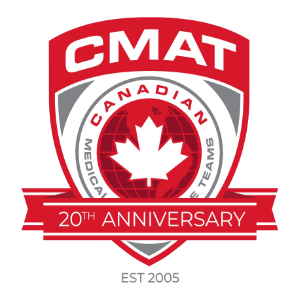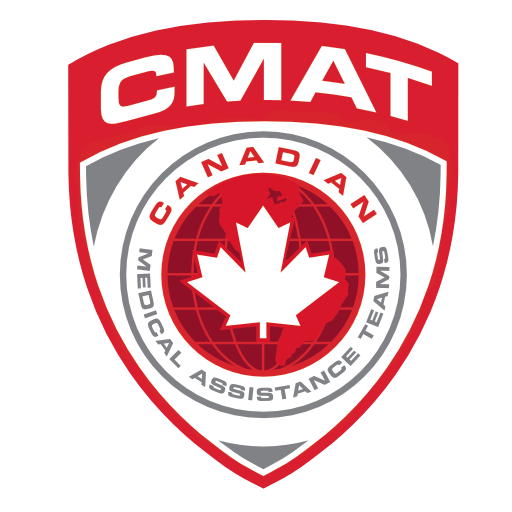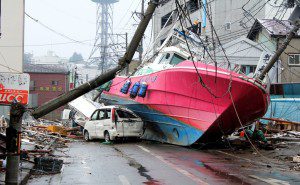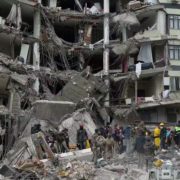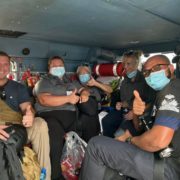CMAT providing clean drinking water for a community destroyed in the tsunami
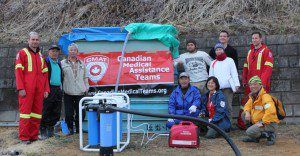
CMAT paramedic Martin Metz and OT Seiko Watanabe install a Nomad water purification system in the town of Aikawa Kitakamicho.
Tuesday, March 29, 2011 – Ishinomaki, Miyagi, Japan- The CMAT Medical Team continues to work in the communities surrounding Ishinomaki, and is slowing winding up its operations in Japan. While visiting evacuation centres in several small villages along the coast, team members provided first aid and some primary medical care to the evacuees. Many of the patients that the team saw were elderly, and had chronic illnesses like diabetes and high blood pressure.
Meanwhile, other members of the team were awaiting delivery of the Nomad water purification unit. The purchase of this portable water purification system manufactured by Noah Water Systems was made possible through the generous support of our donors, especially the Lotus Light Charity Society from Vancouver. The unit is capable of producing 25 gallons / 95 litres per minute or 36,000 gallons / 136,800 liters per day. The Nomad will satisfy the need for large volumes of safe drinking water using any fresh water source: well, lake, river, stream, and pond and even polluted floodwaters.
The Nomad unit cleared Japanese customs, and was delivered to the team in Ishinomaki yesterday. In collaboration with the Japanese military, the decision was made to place the Nomad in the community of Kitakamicho Aikawa, a small fishing village of about 1000 people, which was completely destroyed by the tsunami. It is located high enough up that it will soon supply the whole community with safe drinking water. The water reservoir and most of the water supply infrastructure was washed away in the tsunami and the local authorities and military estimate that it will take at least six months before the system is back up and running again. The nomad will supply water for the community during the reconstruction.The initial acute phase of the disaster is now transitioning to the chronic recovery phase. The primary objective of providing initial disaster relief has been met, and much of the need now will be longer-term shelter and reconstruction planning. This requires long-term funding from other organizations who can commit the necessary resources and time.
Participation in this relief effort has been a good experience for CMAT and has provided invaluable lessons to enhance the effectiveness of future missions. Although preparation and safety of our teams is essential, disasters always result in the unexpected, and flexibility is needed to meet our objectives.
